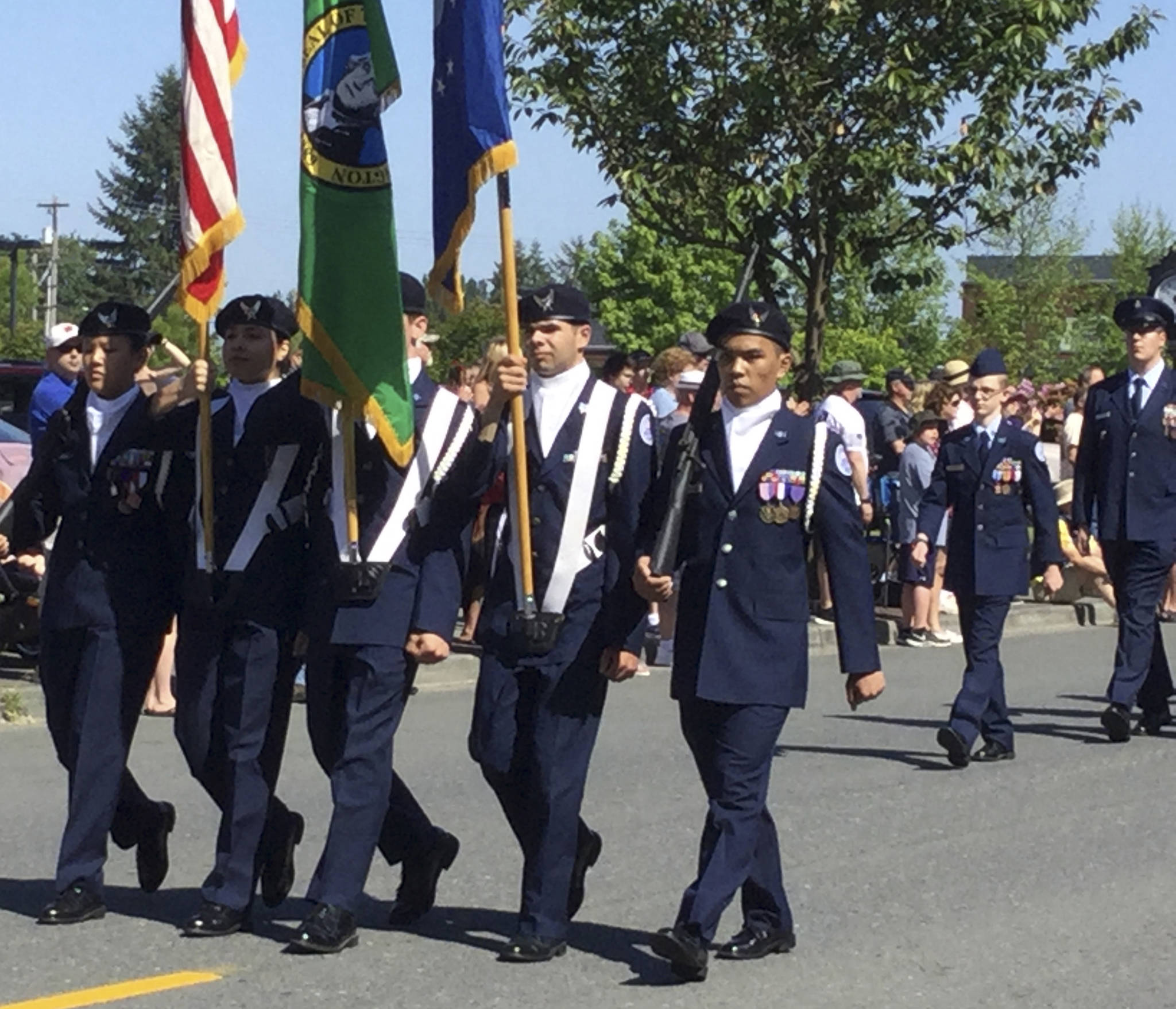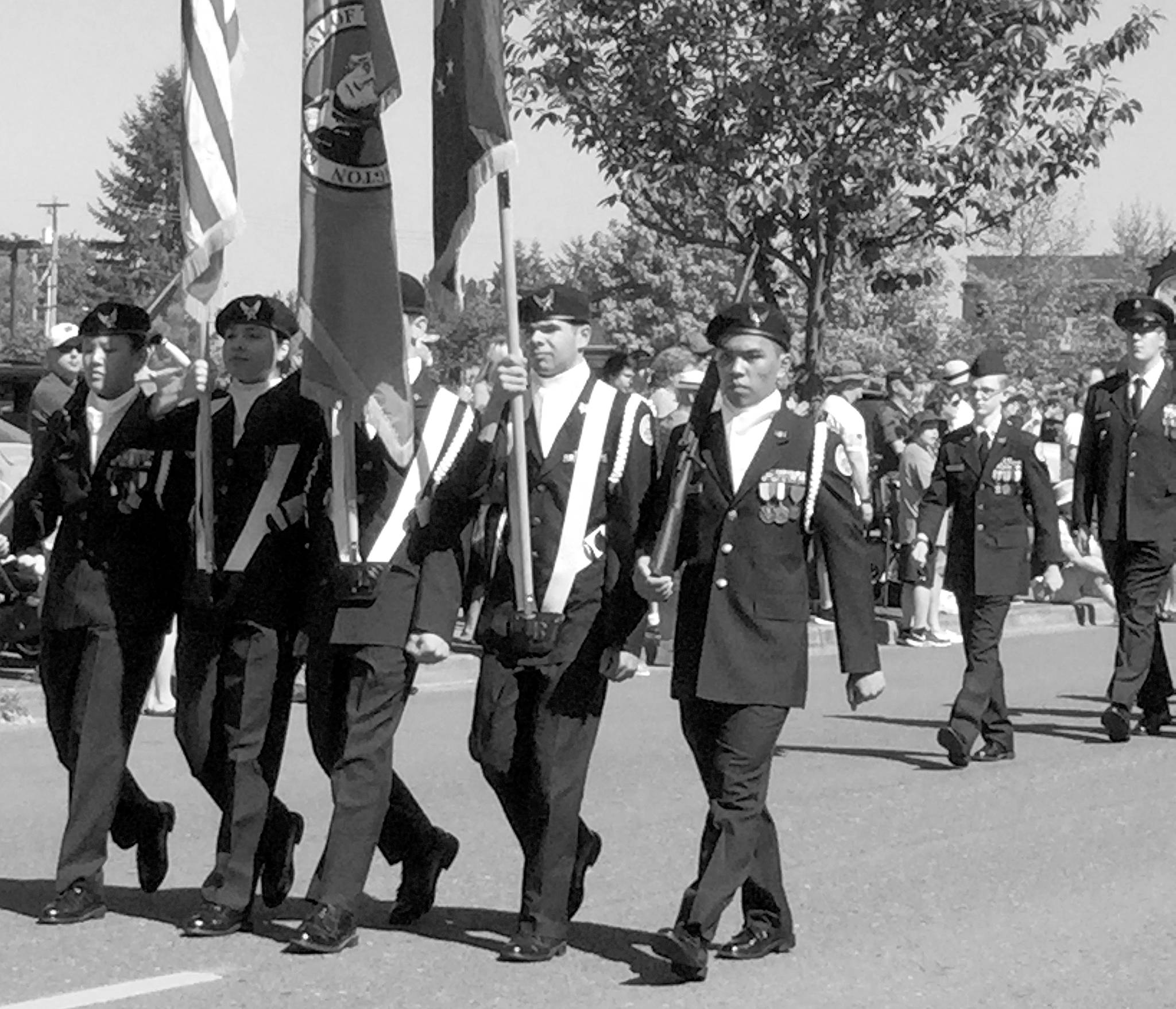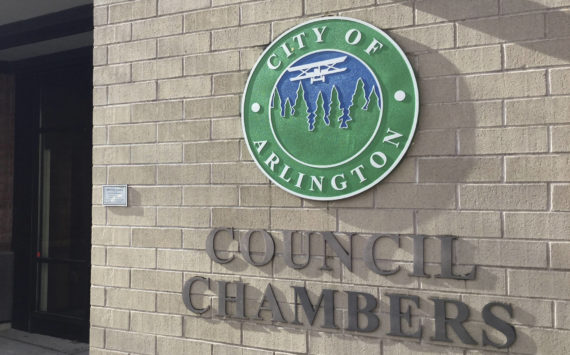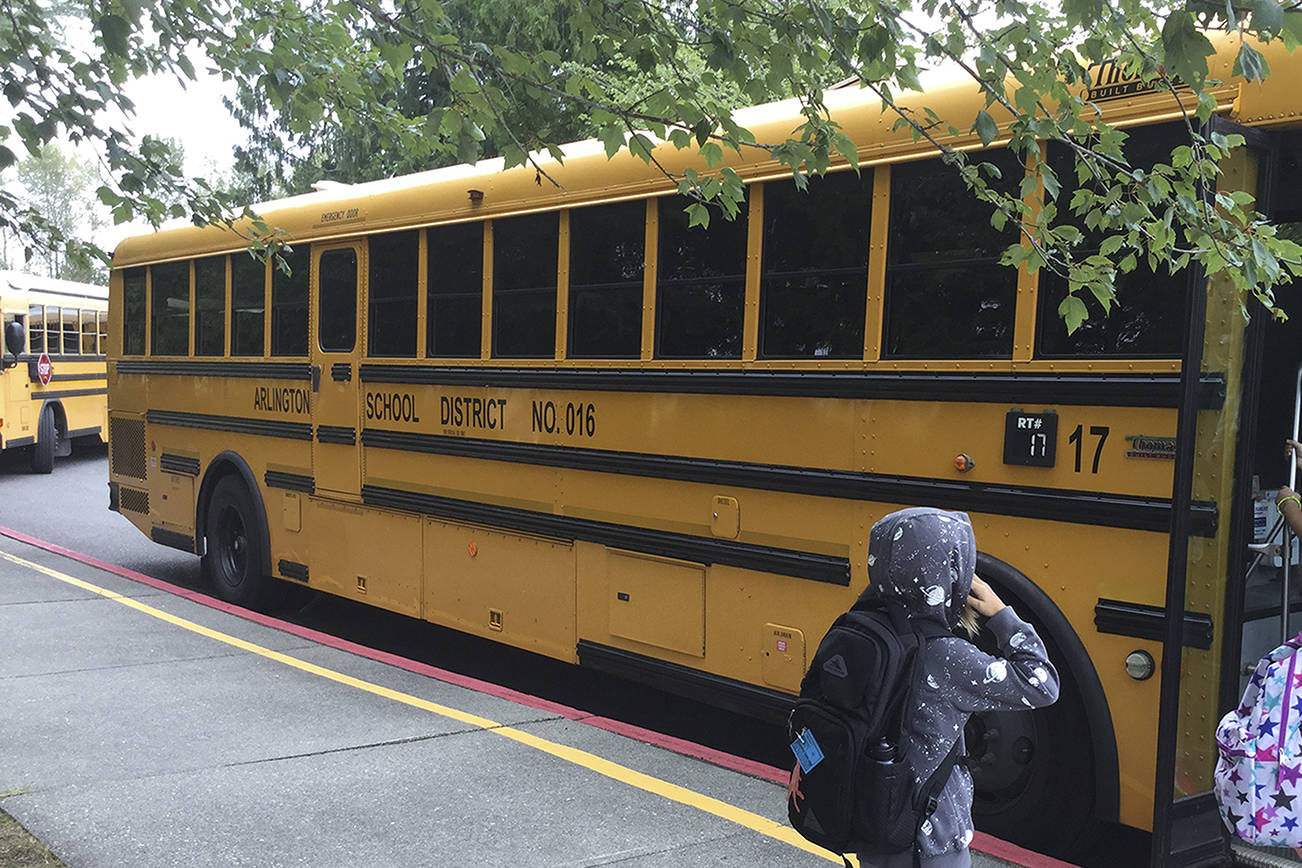ARLINGTON – For 12 years, the Air Force Junior ROTC program at Arlington High School has been developing students of character, teaching flight science and leadership, and the value of camaraderie.
And, to demonstrate the program has a lighter side that isn’t all drills and marching in uniform, they also host a haunted house fundraiser each year, and even threw a dance routine into last year’s 4th of July parade to celebrate a third-place showing in a statewide competition.
Now district leaders, staff, cadets and parents are in scramble mode to save a program put on notice that it faces deactivation by the Air Force if it doesn’t get its historically low enrollment numbers up to federally required levels of 100 students. The most-recent October report found there were 78 students.
In a letter from retired Col. Scotty E. Lewis with the Air Force Junior Reserve Officers’ Training Corps headquartered at Maxwell AFB in Alabama, he wrote that the school has not met standards for five years, leading to the difficult decision to deactivate the program this June 30. Major Mike Blue, the AHS JROTC leader and senior aerospace science instructor, said the program has been on notice before, but “the tone of this letter was stronger.”
Deactivation is serious. Shuttering a program ends the federal govemment’s funding of the teaching position and demands return or transfer of all Air Force equipment, supplies, uniforms and textbooks.
Recent efforts averted the shutdown, but the program isn’t out of the clouds yet. In a Dec. 14 letter from Arlington Schools Superintendent Chrys Sweeting, she asked the Air Force to reconsider its decision.
“Please allow us to demonstrate we can increase the number of students enrolled in the program in a short time,” Sweeting wrote. “Both parents and students stand ready to support our effort toward sustained viability.”
She said more outreach to the middle schools, projected increases in school enrollment and population growth, partnering with nearby districts and getting Blue more staff support are among several factors that can boost the program.
The letter, combined with efforts of cadets and parents who rallied to save the program through support letters and a JROTC mailer that went to 5,000 households in December, bought the program more time.
In a letter dated Jan. 4, Col. Paul C. Lips said he would extend the closure decision until Oct. 10. If 100 cadets are not enrolled by then, deactivation will be reinstated for May 2019.
“We have time right now,” Sweeting said, “but we don’t want to let up.” Blue said, “Cadets were taking it pretty hard at first. Now they’re taking it on as a challenge” to grow their ranks.
Cadets who wrote support letters spoke highly of the life lessons they are learning, and Blue’s influence as a leader. “This program has changed my life, and I want it to continue changing lives for years to come,” Cadet Squadron Cmdr. Lucas Jankovic said.
The cadets are involved with community service all around town. They helped organizations such as the local VFW post, American Legion, Cocoon House and others. The program averages about 1,000 hours of community service a year.
“Our community can’t afford to lose that,” Jankovic said.
This year, the program has seen 10 percent growth, and the retention rate for returning cadets is up 20 percent. The recruiting team is working to get new cadets from Lakewood and Weston high schools. Arlington High School, with 5,061 students, has an agreement with Lakewood, officially permitting students to attend AFJROTC classes.
Jeffrey Jennewein, a first year cadet and shared student from Lakewood, was crestfallen when he heard about deactivating the program. “My heart sank because if this wonderful opportunity and life-changing experience were to be taken away it would not only affect the lives and future of those currently here, but it would eliminate the potential for people in future generations to experience this place also,” he wrote.
Cadet Sierra McDonald wrote that she takes the ROTC class in place of science because it’s more fun. “I’ve tried a lot of things in my life but I haven’t liked anything enough to stay with it,” she stated. “ROTC is the only thing I have wanted to stay in.”
Cadet Senior Airman Emma Szondy, a marksmanship co-commander, said, “I’ve learned a lot not only about the military, but leadership and responsibility. My parents have told me that I seem to have more discipline. I don’t see it, but I guess it’s true.”
Parents concerned about the possible elimination of AFJROTC asked for the school board’s support Monday. They shared ideas for advertising the program.
“Let them know the program is here and educate the parents and students about what is available for AFJROTC,” said parent Anna Kikuchi, who has triplets in the program, with one entering previously and pulling the other two in with her this semester. “Kids don’t know the program exists.”
Rachel Andrews, a cadet mom who went through Marysville’s Navy JROTC program in the 1990s, wanted to clear up misconceptions that the AHS JROTC program is a replacement elective – it’s not – and that it’s tailored for students to go into the military. There is no military requirement, she said, but the self-discipline and other facets of the program do lead some in that direction.
Laura Rummel has three daughters in the program and an older one is in the Navy serving in Spain. She said JROTC is a great program that is earning its stripes where her family is concerned.
“I have watched each of my daughters blossom into upstanding young ladies – outgoing, social and born leaders,” Rummel said.








